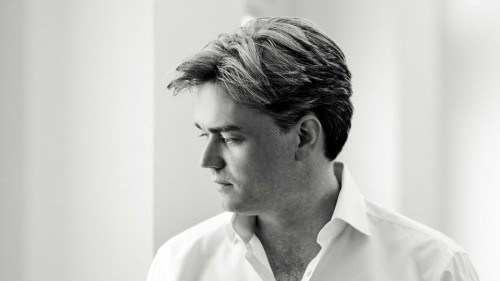 United Kingdom Debussy, Saint-Saëns and Ravel: Stephen Hough (piano), London Philharmonic Orchestra / Edward Gardner (conductor), Royal Festival Hall, London, 10.4.2019. (AS)
United Kingdom Debussy, Saint-Saëns and Ravel: Stephen Hough (piano), London Philharmonic Orchestra / Edward Gardner (conductor), Royal Festival Hall, London, 10.4.2019. (AS)

Debussy – Images – ‘Ibéria’; La mer
Saint-Saëns – Piano Concerto No.5 in F, Op.103 Egyptian
Ravel – Ma mère l’oye (Suite)
I wouldn’t labour the point I made about Debussy’s ‘Ibéria’ after last February’s performance by Esa-Pekka Salonen (review click here), had it not been for the fact that Stephen Johnson’s programme note for this concert suggested that the piece is rarely effective when performed as part of the three complete Images. This may or may not be the case, but the continual selection of just one part of Images causes neglect of ‘Gigues’ and the remarkable ‘Rondes de printemps’, which along with slightly later Jeux has claims to be Debussy’s most innovative orchestral score. That said, Gardner’s performance of ‘Ibéria’ was very satisfying in its clarity, shape and strength of rhythm. The orchestral colours were displayed vividly and the only reservation one might have was that there was a slight lack of atmosphere: in the ‘Parfums de la nuit’ section one was aware of skilful orchestration rather than an evocation of the mysterious sounds and scents of the night.
It is not so long since Vladimir Jurowski conducted the LPO in a programme that included the complete Images and also the Saint-Saëns Egyptian Concerto. On that occasion the pianist was Javier Perianes, who delivered a sparklingly exuberant account of this most intriguingly inventive concerto. Stephen Hough has great experience in the Saint-Saëns concertos, has recorded all five to critical acclaim (as the saying goes), and he has the superlative technique that the Fifth Concerto needs. But compared with Perianes his was a much more serious performance, brilliant, stylish but lacking the exciting, extrovert dash of the Spanish pianist. The extraordinary pianistic sonorities of the middle movement, with its evocation of bells, gamelan sounds, and castanets were however strongly conveyed.
Ravel’s Mother Goose is a deceptively difficult piece to bring off. Simon Rattle conducts it perfectly, finding the child’s sense of discovery, wide-eyed wonder and youthful imaginings that inhabit this delectable, delicate score. Edward Gardner was not quite at the heart of the work. His conducting was sensitive and sympathetic, but the feeling of enchantment was insufficiently conveyed, partly because most of the tempos were marginally too fast. The final ‘Fairy Garden’ scene was, however, brought to life well.
If Gardner’s performance of ‘Ibéria’ had many positive qualities his La mer was superbly conducted. One of its many merits was that he did not allow the dynamic levels to go too high, as so many conductors do – except at climactic points, where the passages concerned made all the more effect through their contrast with music that was projected at a generally lower dynamic level. As a result, Debussy’s masterly orchestration was fully revealed when sometimes it isn’t, and the internal workings of the score registered more clearly. Gardner’s sense of the music’s changing shapes and its ebbs and flows was masterly in its utter naturalness. He seemed to breathe in total sympathy with the music.
Alan Sanders
